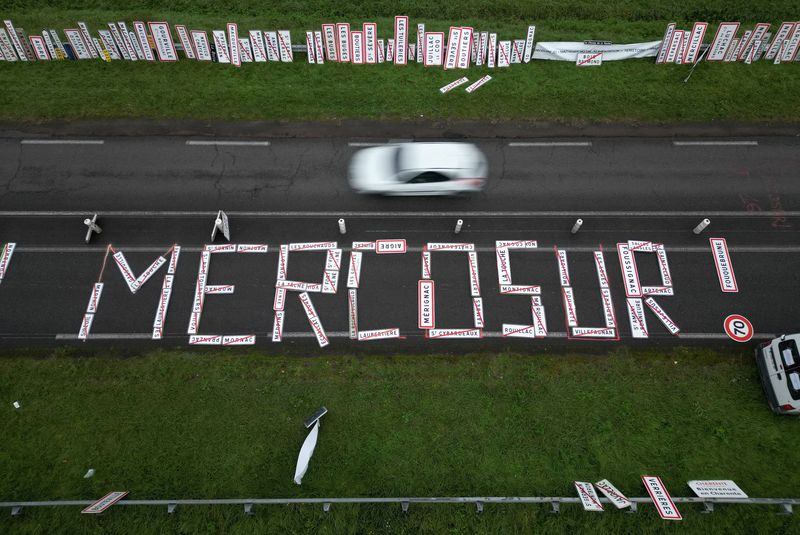By Maximilian Heath and Daniela Desantis
BUENOS AIRES/ASUNCION (Reuters) – South America’s agricultural sector, a key source of global food, celebrated on Friday as the regional Mercosur bloc and the European Union struck a free trade deal, although farmers said they wanted to see the fine print of the agreement.
The agreement was reached after 25 years of negotiations in the Uruguayan capital Montevideo, attended by European Commission President Ursula von der Leyen and the leaders of Argentina, Uruguay, Paraguay and Brazil, the four member states of Uruguay. South American block.
The agreement still needs to be ratified and enter into force, which could take years. It could become blocked if France becomes a staunch opponent, partly over fears of more South American agricultural products arriving in Europe.
“Any opening of the market is beneficial, I think it is an opportunity, but you have to look at the fine print, what the conditions are,” Carlos Castagnani, president of the Argentine Rural Confederations, told Reuters.
“We must ensure that our way of producing is respected.”
Argentina is the world’s largest exporter of processed soy, No. 3 for corn, and a major supplier of wheat and beef.
South American farmers and exporters are keen to gain greater access to the enormous European market. However, fears that environmental clauses will restrict trade and opposition from some EU countries to the deal have dampened expectations.
European demands include restrictions on the use of genetically modified seeds and deforestation, which has been common in South America in recent decades.
Argentina’s grain exporters and processors chamber CIARA-CEC said that while the agreement was a positive step for the bloc, its real impact would not be immediate.
For products such as oil or biodiesel, tariffs will only be significantly reduced in seven to 10 years, CIARA-CEC chairman Gustavo Idigoras told Reuters.
Argentina was the world’s largest supplier of biodiesel more than a decade ago, but was hit hard by European tariffs and other protectionist measures.

The agreement is important for South America’s producers to remain competitive as protectionist policies threaten major economies around the world, said Pedro Galli, a member of the Rural Association of Paraguay, a major soybean exporter.
However, Hector Cristaldo, president of the Union of Production Guilds, the main association of Paraguayan soybean producers, called for calm as the final text is finalized and emphasized the complexity of the process awaiting the deal.
(Reporting by Maximilian Heath and Daniela Desantis)


